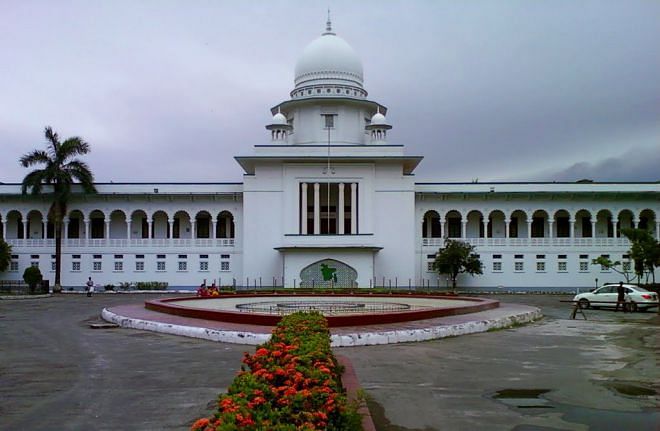Where is the bar now?

WITH what happened recently before the High Court Division bench of Mrs. Naima Haidar, J and Mr. Zafar Ahmed, J, where lawyers and journalists fought each other, I as a lawyer and a member of the Bar, am saddened but not shocked. I lament, but am not dumbfounded.
I think both lawyers and journalists are expected to be the best intellects a country or society has to offer. We both have so much in common. We both make up the moral compass of a nation. We both transact in the currency of expression. We both build our reputations on integrity, honesty, impartiality and accuracy. We both make a work of art out of the smallest of details to paint the biggest picture.
That day's event is merely just a glimpse of where we both have landed ourselves in, that too on the first day of the Supreme Court Bar Association elections for 2014.
What struck me was that while the judiciary was busy deliberating on contempt charges against journalists for comments they made, no one wondered if the lawyers and journalists who engaged in the street fight, for which court proceedings at that very court was stopped for an hour, committed contempt of court. How one cannot see a rabid street fight in the corridors of the very institution that safeguards justice as anything short of a sacrilege of the court and justice is beyond me.
Let me introspect at the outset and think about those two fateful days in December, when the law enforcing agencies used water cannons on lawyers of the Supreme Court and painted its gate pink, when thugs and goons broke down the gates of the Supreme Court and ran amok in its premises, mercilessly beating lawyers of the Supreme Court, both male and female, in broad daylight, when people who will never be able to spell a word threw open their flies and flashed their manhood at the minaret of the Supreme Court, when they set the court on fire.
In those dark hours and their aftermath, what did we, as lawyers, do to establish our dominion over the court, to use the law to bring the perpetrators to justice, to protect the image and dignity of the very establishment that makes us what we are, to do ourselves justice? What did the establishment do to protect its own foot soldiers, to thump its own superiority over injustice, to protect the promise it made to the constitution and to resurrect the supremacy of law over the lawless? What did the mother do to protect and safeguard her own children? Nothing.
On that day, a signal was sent out that lawyers can be beaten up, even inside the highest courts, without having to pay a dime for it, and that we as lawyers are all OKAY with it, so long as we can resume business as usual.
Well, fair warning. It is never going to be business as usual again, unless we respond to the moral duties we owe to the very establishment that feeds us.
The court is a lawyer's workplace. It is a holy shrine, not just for us lawyers, but for you as well. Many of us spend more time in courts than we do in our own homes. We should never hold it in low esteem, or allow someone else to do so. For allowing this is akin to being nonchalant over the violation of the sanctity of our own home, or a place that is perhaps even more sacred.
In the contempt proceedings that created all the hoopla in the first place, the journalists who were discharged of the contempt proceedings took the convenient way out -- by rendering their unconditional apology to the court-- instead of endeavouring to justify why their comments and publications were not tantamount to contempt of court. Contemplating the actions of their colleagues who were engaged in combat just a few meters away, I wonder if they actually felt repentance or defiance. You cannot blame me for thinking so, because their apology was in direct contrast to their colleagues' actions.
What actually does surprise me is how everyone continues talking the talk about how supreme our courts and our laws are, but do nothing when those very virtues get attacked. It all boils down to one simple introspective question: What more did we expect?
Where is the bar now?
The writer is Advocate, Supreme Court of Bangladesh.

 For all latest news, follow The Daily Star's Google News channel.
For all latest news, follow The Daily Star's Google News channel. 




Comments